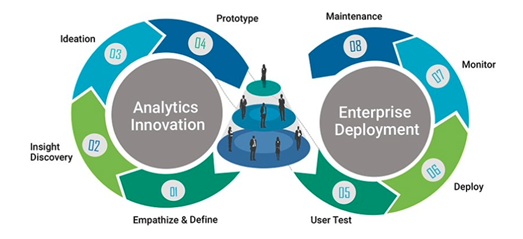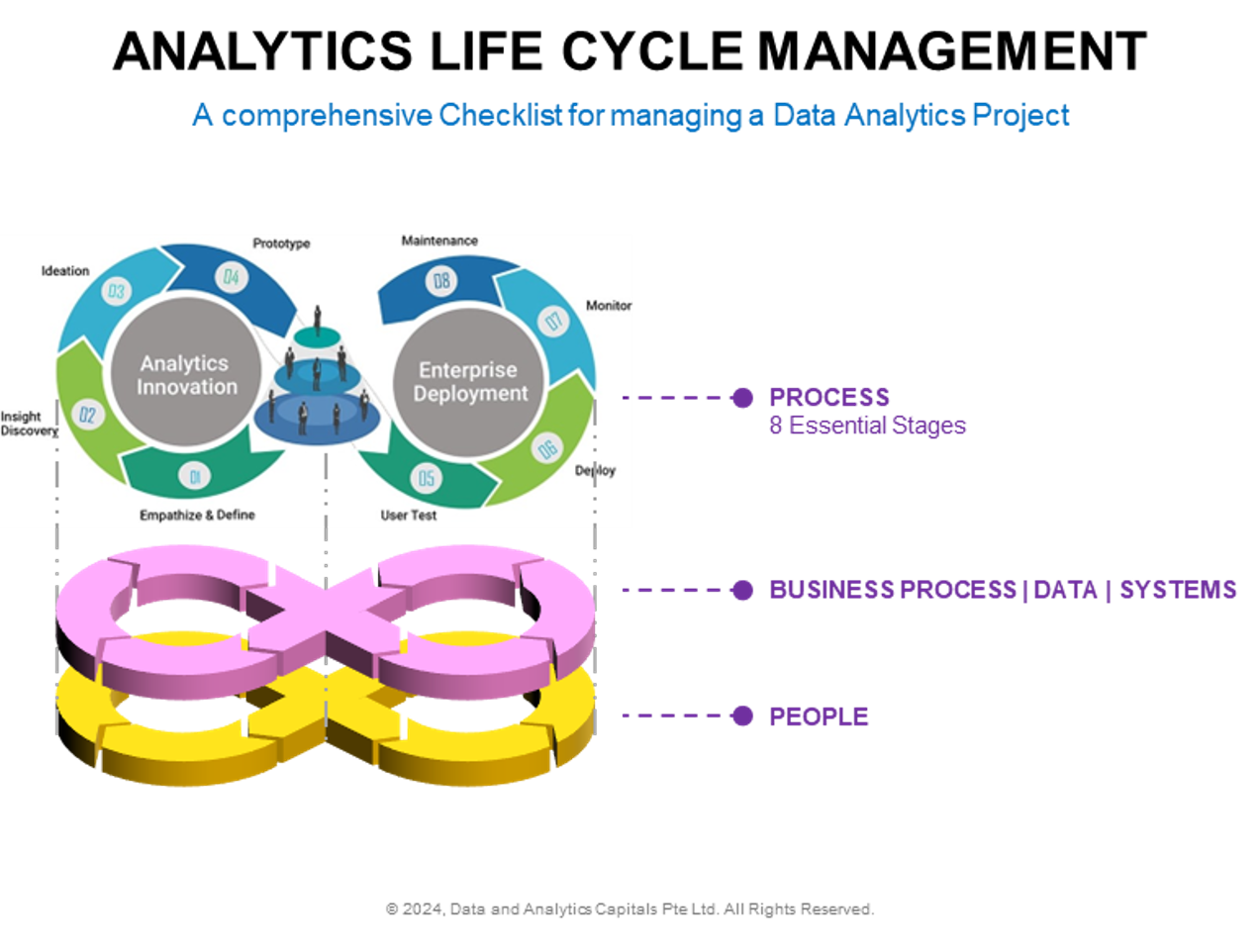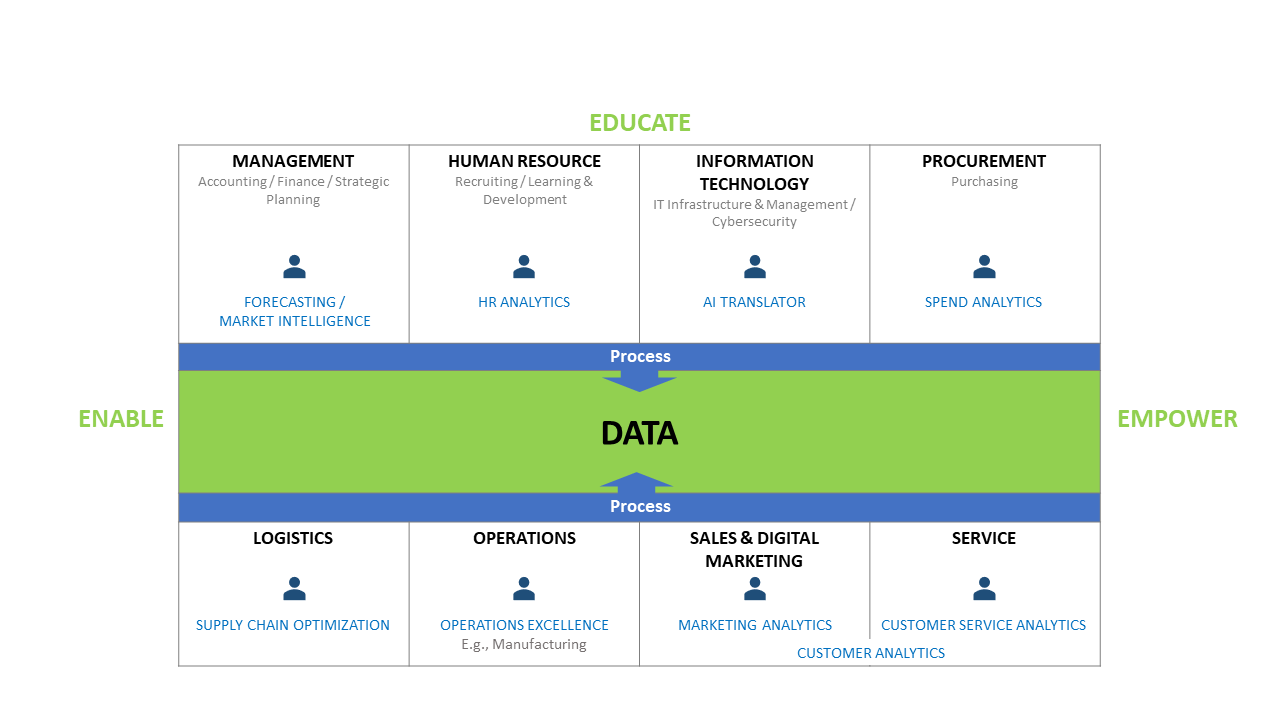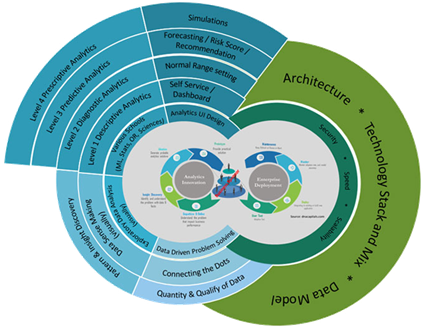Business intelligence managers play a critical role in organisations that are trying to steady their ship in these turbulent economic conditions. Supply chain disruptions, runaway inflation, and evolving customer habits are just obstacles that leaders and employees must learn to overcome to come out stronger from this storm.
At present, skill gaps in proper data strategy cost local businesses. 9 in 10 local businesses gather more data than they can analyse, despite IT spending growing by 116% in the last three years. The proliferation of real-time data collection has introduced an endless stream of ‘raw material’ for employees of all functions to process. But without business intelligence leaders with the right skills to close this gap, data will keep piling on and hinder businesses from reaching their true potential.
For example, local organisations are estimated to lose a staggering $473 million per annum from unstreamlined processes such as filing for claims and expenses, which can take managers up to 8.2 hours each month or a full working day. This can be avoided by building effective prototypes through proper scoping of data analytics projects and framework applications. Ultimately, it’s about building a product that engages the end-customer in a cost and time effective way, through data.
Developing and Operationalising (DevOps of Data Analytics)
The Analytics Life Cycle framework

A 3-layer framework that covers the essential components of process, data, and people, the Analytics Life Cycle Framework shows how projects can be managed effectively from start to finish.

The diagram above illustrates the first phase, which consists of the 8 following stages:
- Empathise & define
- Insight discovery
- Ideation
- Prototype
- User test
- Deploy
- Monitor
- Maintenance
Thereafter, the three essential items of predictive analysis, data governance and management, as well as project management can be carried out effectively.
Understanding the various stages of the cycle and one’s role within it can help organisations ensure renewal of talent as they walk new hires through current cycles while empowering them to act upon subsequent ones.

The Learning Framework and Skills

A learning framework designed by DNA Capitals covering the full business value chain, across industries and organisational levels
DNA Capitals’ Learning Framework
DNA Capitals crafted the Career Conversion Programme (CCP) for Tech Professional — Business Intelligence Managers with a curated format consisting of 6 modules and 1 practicum. The programme was designed to cover sufficient breadth and depth so that business intelligence managers and their colleagues can work together harmoniously.
The CCP forms part of the first 4 stages of the Analytics Life Cycle, and is designed to help business intelligence managers work with both technical and non-technical staff to explore data, glean effective insights, and pick up essential skills such as:
- Correlation & predictive analysis
- Time series analysis & forecasting
- Machine learning foundations
Under the practicum, the learner will propose a company project relevant to their day job. From there, they will apply data-driven principles and problem-solving skills that were picked up from the framework and witness the theory that they’ve learned in action. Executing this right will ensure innovative, and sustainable analytics solutions across all levels of the organisation.
Technical Skills & Competencies
Business intelligence managers need to master the five following skills in order to prove their competencies in leading their organisations. These include:
- Data analytics: The ability to design and conduct data studies in a way that showcases actionable insights that drive organisational decisions.
- Data strategy: The ability to develop data management structures and recommendation policies, such that the tools and processes for handling, storing, and using data can be implemented smoothly and effectively.
- Business performance: The flexibility to manage organisation performance systems across departments so that no part of the company works in silo.
- Data visualisation: The technical depth to develop, apply, and evaluate algorithms, predictive data modelling, and data visualisation in a way that brings underlying trends and patterns in data to the surface.
- Computation Modelling: The experience and foresight to select appropriate statistical algorithms and data models so that hypotheses can be tested appropriately and the correct solutions can be derived.
All-in-all, the Career Conversion Programme (CCP) for BI managers will provide one with the necessary tools, training, and roadmap to acquire all the technical skills and aptitudes necessary for becoming a competent Business Intelligence Manager.
Up to 90% monthly salary support
Don’t miss this chance to nurture, reskill, and upskill talents by ironing out process kinks and filling in database gaps through the Career Conversion Programme (CCP) for Tech Professional — Business Intelligence Managers. Participating companies can enjoy up to 90% monthly salary support. Funding caps and job growth incentive rates apply.
About CCP
Designed for mid-career PMETs (Professionals, Managers, Executives, and Technicians), the CCP for Information and Communications Technology curriculum is specially curated by data management experts to facilitate a smooth, on-the-job training (OJT) and transition towards more data-focused roles in the ICT industry.